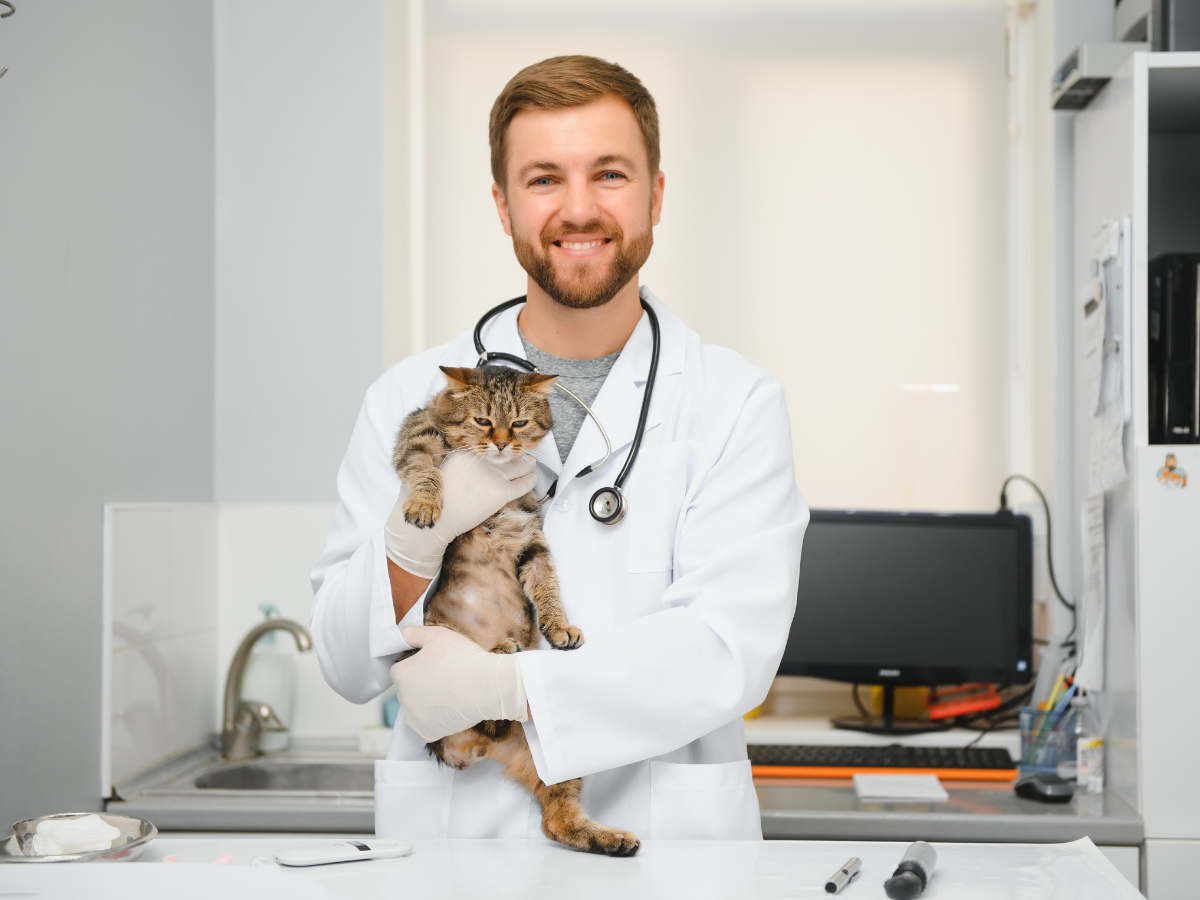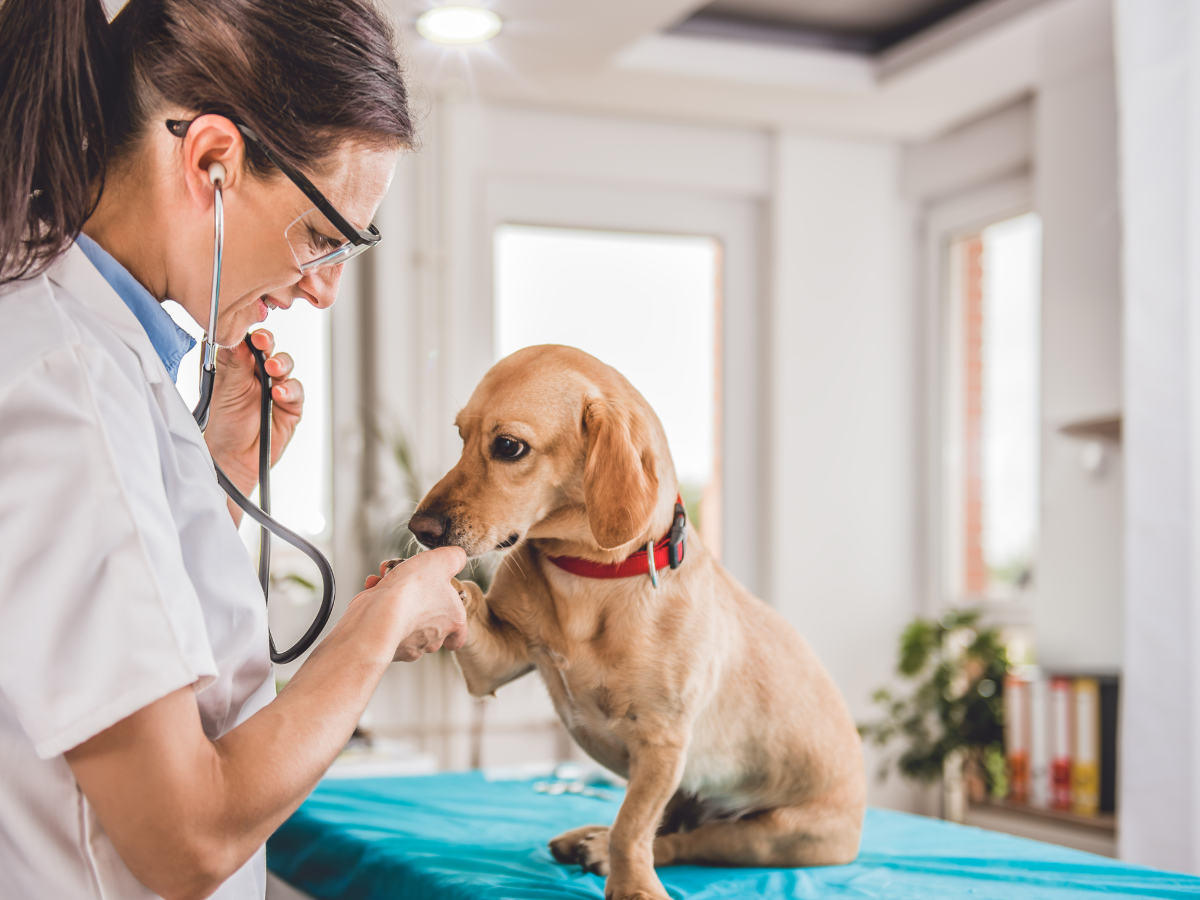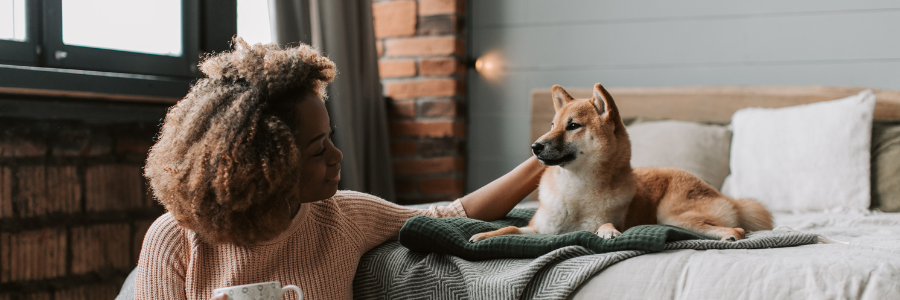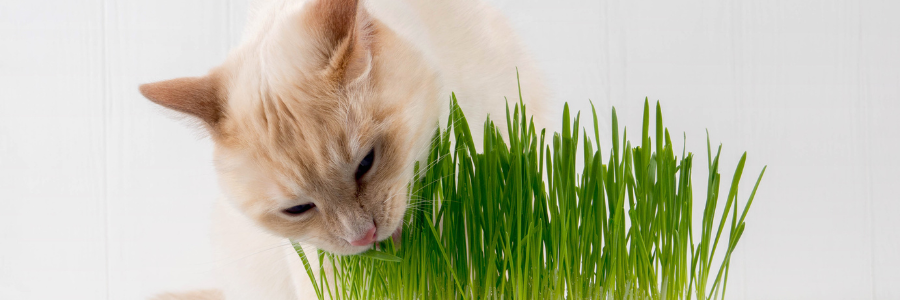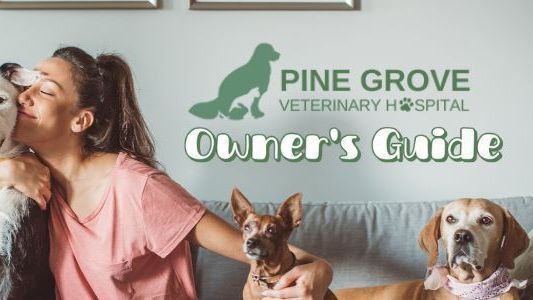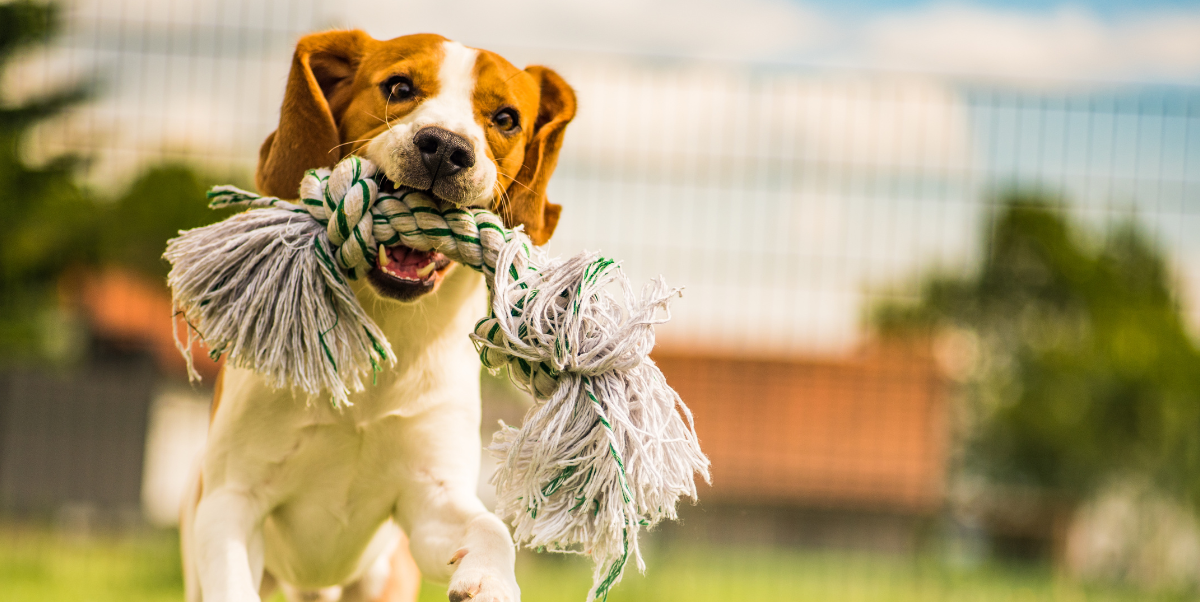My Dog Has Digestive Upset Follow Veterinarian Recommendations
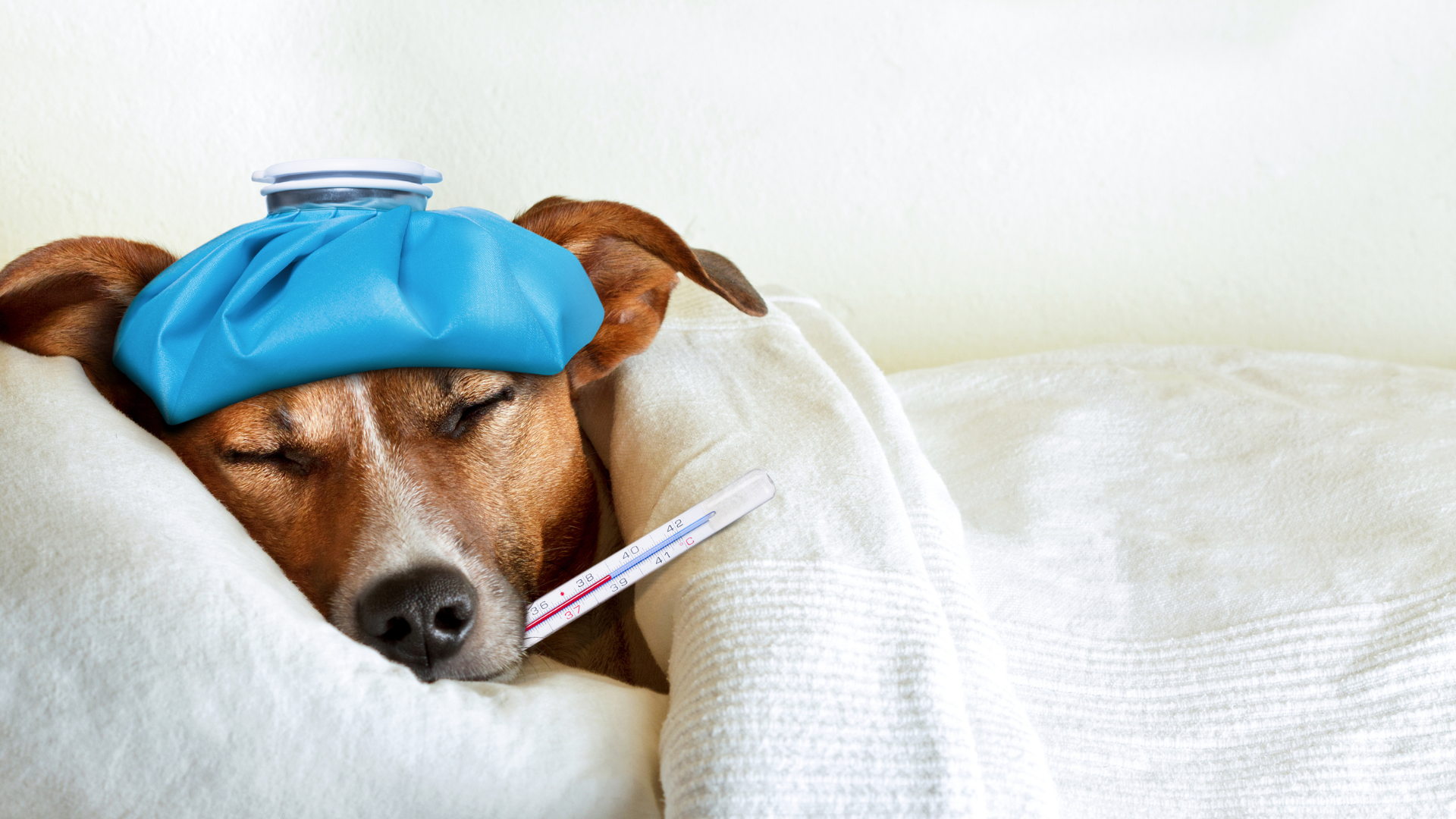
Key Takeaways
- Always Ensure proper hydration and keep track of water intake, especially if the dog has been vomiting or has diarrhea.
- Do not try home remedies without a consultation with your vet. The wrong product may complicate a serious condition.
- Always seek professional veterinary care if you feel concerned about your dogs health and especially if your dog's vomiting is frequent or if there are signs of serious digestive issues. You need an accurate diagnosis to begin the correct treatment.
- If your vet recommends reintroducing a bland diet after withholding food for a period of time, be sure re introduce foods following the specific foods and a feeding schedule as prescribed by the vet.
Initial Steps for Managing Canine Digestive Upset
Withholding Food and Monitoring
When your dog experiences an upset stomach or vomiting, your vet may ask that you temporarily withhold food. This fasting period allows the digestive system to rest and recover. A normal fasting period is between 12 and 24-hours, closely observing your dog's behavior and any symptoms during this time.
After the fasting period, monitor your dog's response as you gradually reintroduce food. Your vet will most often suggest starting with small, frequent meals of a bland diet. It's crucial to note any changes in your dog's condition, including improvements or further signs of distress.
Maintaining a log of your dog's intake and symptoms can be invaluable for your vet. This record should include the types and amounts of food consumed, water intake, frequency of vomiting, and any other notable behaviors.
Remember, do not experiment with food or medications without professional guidance, as this could exacerbate your dog's condition. If vomiting persists or other concerning symptoms develop, consult with your veterinarian immediately.
Reintroducing a Bland Diet
Once your dog's stomach has settled after a period of fasting, gently reintroduce food with a bland diet. Your vet will recommend starting with small portions of easily digestible foods. A classic bland diet may begin with white rice, then adding boiled chicken. These foods are low in fat and gentle on the stomach.
Generally for mild stomach upsets, your vet will recommend gradually mixing in your dog's regular food over several days, increasing the proportion of regular food with each meal. This helps to prevent a recurrence of stomach upset.
Here's a simple guideline for the transition back to regular food:
- Begin with a mixture of 75% bland diet and 25% regular food.
- If well-tolerated, move to a 50/50 mix.
- Finally, shift to 75% regular food, provided there are no signs of vomiting.
Remember to monitor your dog's response closely. If vomiting resumes, it's important to cease feeding and consult your veterinarian. Keeping a log of your dog's intake and behavior can be invaluable information for the vet, especially when you're visiting Pinegrove Veterinary Hospital for their expertise.
Ensuring Adequate Hydration
Maintaining proper hydration is crucial for dogs recovering from stomach upset and vomiting. Water facilitates digestion and the absorption of nutrients, while also promoting the elimination of waste. At Pinegrove Veterinary Hospital, we recommend that dogs consume approximately one ounce of water per pound of body weight daily. For instance, a 100-pound dog should drink about 100 ounces of water each day.
During episodes of vomiting or diarrhea, dogs can lose vital electrolytes. Early signs of dehydration to watch for include excessive panting, dry mouth, gums, or nose, and visible lethargy. If these symptoms persist, it's important to seek medical attention.
Here are some steps to ensure your dog stays hydrated:
- Always provide access to fresh, clean water..
- Monitor your dog's water intake to ensure they are drinking enough.
- Consult with your Orillia vet at Pinegrove Veterinary Hospital if you have concerns about your dog's hydration levels.
Consulting a Veterinarian
When your dog's experiences stomach issues it's crucial to seek professional advice. Pinegrove Veterinary Hospital emphasizes the importance of an accurate diagnosis and a tailored treatment plan that considers your dog's specific health needs.
If you notice changes in your dog's behavior, such as listlessness or discomfort after vomiting, it's a sign to contact your Orillia vet promptly. These symptoms could indicate conditions like gastroenteritis, foreign material ingestion, or pancreatitis, which require immediate attention.
Trusting your instincts as a pet owner is vital. If you're concerned about your dog's health, don't hesitate to reach out to Pinegrove Veterinary Hospital for guidance. It's always better to be cautious and seek a professional opinion than to overlook a potentially serious health issue.
Remember, each dog is unique, and what works for one may not be suitable for another. Here's a quick checklist to consider before your vet visit:
- Monitor your dog's symptoms and behavior closely.
- Keep a record of the frequency and nature of the vomiting.
- Note any changes in appetite or energy levels.
- Refrain from administering over-the-counter medications without veterinary approval.
Probiotics and Digestive Health
Probiotics play a pivotal role in maintaining your dog's digestive health. These beneficial bacteria are essential for supporting the immune system and mitigating gastrointestinal disorders. They help maintain a healthy balance of gut bacteria.
Remember, the right kind of probiotics are necessary for them to survive in a dog's gut and provide health benefits. While probiotics are beneficial, it's important to consult a veterinarian for tailored advice. The experts at Pinegrove Veterinary Hospital can guide you on the appropriate probiotic use for your dog, ensuring it complements their specific health needs.
The Role of Fiber in Digestive Recovery
When managing a dog's diet, introducing the right amount of fiber for your pet is important. Moderate amounts of both soluble and insoluble fiber are beneficial for gut health, Fiber serves as a prebiotic, providing food for the beneficial probiotics in the gut and aiding in the restoration of the gut lining. However, it's important to note that too much fiber can exacerbate diarrhea, knowing the correct amount for your dog is essential. Remember, before making dietary changes or introducing new supplements, consulting with a professional will ensure the safety and health of your pet.
Hydration Solutions and Electrolyte Replenishment
When a dog is suffering from an upset stomach and vomiting, maintaining proper hydration is crucial. Dehydration can worsen symptoms and lead to further health complications. It's essential to ensure that your dog has constant access to fresh, clean water. In cases of severe fluid loss, follow your vet’s recommendations as there are products specifically formulated for pets. Here are some early signs of dehydration to watch for in your dog:
- Excessive panting
- Dry mouth, gums, or nose
- Lethargy or fatigue
- Dry or sunken eyes
When you observe these symptoms, it's important to seek advice from your Orillia vet at Pinegrove Veterinary Hospital. They can provide guidance on the appropriate diagnosis and treatment for your pet, considering their breed, size, age and health conditions.
Over-the-Counter Medications and Safety
When your canine companion is experiencing mild digestive upset or vomiting your vet may recommend over-the-counter (OTC) medications to provide relief. However, It's crucial to understand when, how and what is appropriate over the counter medications. Remember that not all medications are safe for all dogs. Factors such as age, breed, and health status can influence how a dog reacts to medication. Here's a rule to follow:
- Consult with your pet’s vet before beginning any treatment.
While OTC medications can be helpful, they must be part of an approved treatment plan set out by a professional veterinary adviser. Consult with your vet to decide on the best course of action, reach out to your Orillia vet for guidance.
Consulting Your Vet Before Administering OTCs
When considering over-the-counter (OTC) medications for your dog's upset stomach and vomiting, it's crucial to consult with a professional. Pinegrove Veterinary Hospital emphasizes the importance of speaking with your Orillia vet to ensure the safety and health of your pet. Self-medicating without guidance can lead to complications, especially if your dog has underlying health conditions or is on other medications.
Before reaching for OTC remedies, remember that your emergency vet Orillia is equipped to provide personalized advice and treatment options that are tailored to your dog's specific needs.
Here are some key points to consider:
- Always verify the suitability of an OTC medication with a veterinarian.
- Understand that dosages for dogs differ from those for humans and can vary based on size, breed, and health status.
- Recognize that some human medications can be toxic to dogs, and only a vet can determine the safest options.
In case of persistent or severe symptoms, it's imperative to seek professional advice from Pinegrove Veterinary Hospital. They can offer a comprehensive treatment plan that may go beyond OTC medications, ensuring your furry friend's swift recovery.
Understanding Dosage and Side Effects
When administering over-the-counter medications to your dog, understanding the correct dosage and potential side effects is crucial. At Pinegrove Veterinary Hospital, we emphasize the importance of this knowledge to prevent complications such as constipation or toxicity.
Misuse of OTC medications can lead to serious health issues.
Always consult with your Orillia vet at Pinegrove Veterinary Hospital before administering any medication to ensure safety and proper care for your dog's specific needs.
Recognizing When to Seek Veterinary Care
Signs of Serious Digestive Issues
When a dog exhibits persistent symptoms such as vomiting, diarrhea, loss of appetite, or changes in stool consistency, it's crucial to monitor their condition closely. These symptoms, especially if they persist for more than a day or two, could be indicative of a more serious underlying issue. Pinegrove Veterinary Hospital emphasizes the importance of recognizing when these signs, accompanied by pain, lethargy, or bloating, warrant a visit to your Orillia vet.
Be vigilant, looking for symptoms that may signal a severe condition requiring immediate attention. Blood in vomit or stool, extreme lethargy, or sudden severe bloating are considered emergencies.
Additionally, changes in stool texture or color, such as tarry black stools, and alterations in bowel movement frequency can be telling signs of digestive distress. If your dog's stomach appears swollen or if they exhibit pale gums, these are red flags that should prompt an immediate consultation with a veterinarian.
How Vomiting Frequency Influences Vet Visits
The frequency of your dog's vomiting is a critical factor in determining the urgency of a veterinary visit. A single episode of vomiting may not require immediate attention, but if your dog vomits multiple times or the vomiting persists, it's time to consult with
Pinegrove Veterinary Hospital or your local Orillia vet.
- Single episode: Monitor your dog's behavior and diet.
- Multiple episodes in a day: Contact your vet for advice.
- Persistent vomiting over multiple days: Schedule a vet appointment.
Vomiting can be a symptom of various underlying conditions, some of which may require prompt medical intervention to prevent more serious health issues.
Understanding the pattern of vomiting will help your veterinarian at Pinegrove Veterinary Hospital to diagnose the problem more accurately. Keep a record of the vomiting frequency, appearance, and your dog's overall behavior to share with your vet.
The Importance of Professional Diagnosis
When dealing with a dog's upset stomach and vomiting, professional diagnosis is crucial to determine the underlying cause and appropriate treatment. At Pinegrove Veterinary Hospital, our experienced team understands that each case is unique and requires a thorough examination.
- Existing conditions such as advanced age, diabetes, or cancer can complicate diagnosis and treatment.
- Subtle signs that something is wrong with your dog are often only noticeable to you. Trust your instincts and consult with our veterinarians.
It's essential to perform diagnostic tests to make informed treatment recommendations, tailored to your dog's specific needs.
Remember, home remedies are not substitutes for professional veterinary care. If your dog's symptoms persist or worsen, it's time to visit Pinegrove Veterinary Hospital, your trusted Orillia vet, for a comprehensive evaluation and expert advice.
Treatment Options Beyond Home Care
Pinegrove Veterinary Hospital offers a range of services that go beyond what can be provided at home. These may include diagnostic tests such as blood work, X-rays, or ultrasounds to determine the underlying cause of your dog's discomfort.
At Pinegrove Veterinary Hospital, our team is equipped to provide specialized treatments which may include IV fluids, prescription medications, or even surgery if necessary. We understand the importance of a tailored approach to each individual pet's needs.
Pinegrove Veterinary understands that your pet will heal best at home, however when your dog's condition requires hospitalization, the caring staff at Pinegrove Veterinary Hospital will ensure that your pet receives the best possible care. Our facility is equipped to handle serious digestive issues, offering:
- Intensive monitoring
- Supportive care
- Advanced therapeutic options
Remember, timely intervention by a professional can make a significant difference in your dog's recovery. Do not hesitate to contact your Orillia vet at Pinegrove Veterinary Hospital if you suspect your dog is not feeling well.
Preventative Measures and Long-Term Care
Dietary Adjustments for Sensitive Stomachs
For dogs with sensitive stomachs, Pinegrove Veterinary Hospital recommends a gradual transition to a specialized diet. Sudden changes in a dog's diet can lead to digestive upset, so it's important to introduce new foods slowly. Mix a small amount of the new food with your dog's current diet, increasing the new food proportion over the course of a week.
- Prescription sensitive digestion dog foods are available.
- High-quality AAFCO-approved dog food is essential.
- Monitor your dog's appetite and health during dietary changes.
Ensuring your dog eats small, frequent meals of bland, digestible food can prevent nausea and promote digestive health. For dogs with allergies, alternative protein sources may be necessary.
Always consult with your Orillia vet at Pinegrove Veterinary Hospital before making significant dietary changes or introducing new medications. They can provide guidance tailored to your dog's specific needs and health conditions.
Understanding Your Dog's Digestive Health
Understanding your dog's digestive health is crucial for maintaining their overall well-being. Pinegrove Veterinary Hospital emphasizes that a dog's digestive system is designed to process proteins and fats efficiently due to their shorter gastrointestinal tract. This adaptation allows for quick nutrient absorption but can make the breakdown of simple carbohydrates less efficient.
- Regular check-ups are essential to monitor digestive health.
- Early detection of issues can lead to more effective treatment.
- Unusual changes in your dog's health should prompt a vet visit.
Maintaining a close eye on your dog's digestive health is not just about responding to issues as they arise, but also about preventing them. By understanding the unique needs of your dog's digestive system, you can tailor their diet and care to support optimal digestive function.
Always remember that each dog is unique, and what may be suitable for one may not be for another. It's important to consult with professionals like those at Pinegrove Veterinary Hospital for personalized advice, especially if you're considering dietary changes or if your dog shows signs of digestive discomfort.
Regular Check-Ups and Professional Advice
Maintaining a consistent schedule of check-ups at Pinegrove Veterinary Hospital is crucial for the long-term digestive health of your dog. These regular visits allow for early detection and management of any potential issues that may arise. It's important to remember that you know your dog best; subtle changes in their behavior or routine may indicate a need for a veterinary consultation.
At Pinegrove Veterinary Hospital, we emphasize the importance of understanding your dog's normal patterns and behaviors. This knowledge is key in recognizing when something might be amiss and warrants a visit to your Orillia vet.
Here are some situations when you should consider reaching out to Pinegrove Veterinary Hospital:
- Unusual changes in appetite or water consumption
- Deviations from normal bowel movements or urination patterns
- Any signs of discomfort or pain during digestion
- Persistent vomiting or diarrhea that doesn't resolve with home care
Remember, proactive care is the best way to ensure your furry friend remains healthy. Regular check-ups at Pinegrove Veterinary Hospital can provide peace of mind and are an essential part of your dog's healthcare routine.
At Pine Grove Veterinary Hospital, we understand the importance of proactive health measures and compassionate long-term care for your beloved pets. Our dedicated team offers a comprehensive range of services, including preventive care, to ensure your furry family members enjoy a healthy, happy life. Don't wait for health issues to arise; take the first step towards a thriving pet by visiting our 'Preventive Care' section. Learn more about how we can support your pet's well-being and schedule an appointment today!
Conclusion
In conclusion, when your dog is suffering from an upset stomach or vomiting, it's crucial to approach their care with caution and under veterinary guidance. Hydration is paramount, and rehydration solutions may be necessary to replenish lost electrolytes. Home remedies and Over-the-counter medications must be used with a vet's approval to ensure your furry friend's safety. Remember, are not substitutes for professional veterinary care, especially if symptoms persist or worsen.

